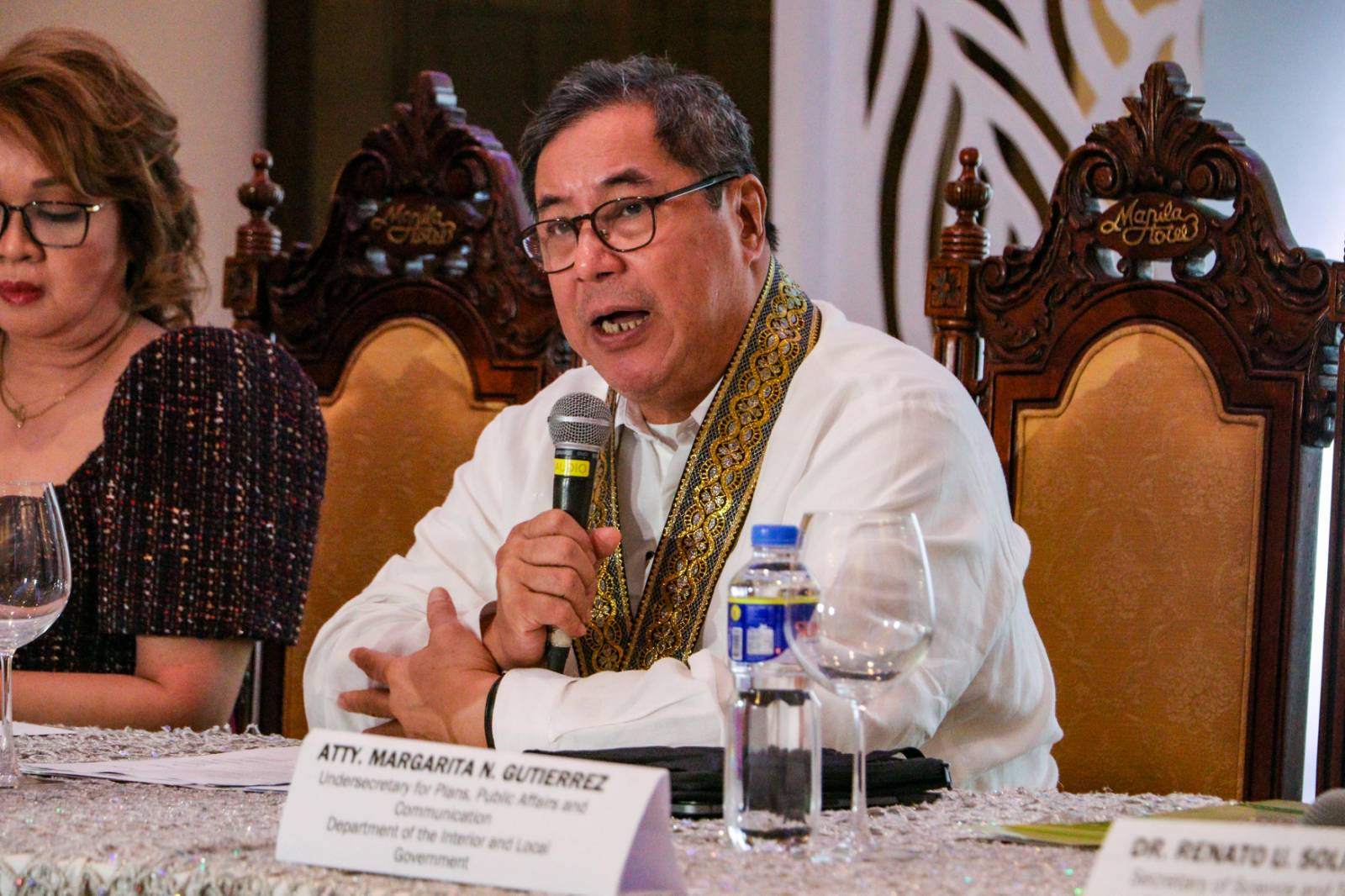PPAN 2023-2028: NNC unveils plan to combat nutrition challenges in PH
At A Glance
- DOH and NNC launched the Philippine Plan of Action for Nutrition (PPAN) for 2023–2028.
- The PPAN serves as the blueprint or framework to guide government, NGOs, academe, and the private sector in a coordinated effort to reduce all forms of malnutrition.
In a concerted effort to combat nutrition challenges across the nation, the National Nutrition Council (NNC), an agency under the Department of Health (DOH), took the lead in launching the Philippine Plan of Action for Nutrition (PPAN) on Monday, Sept. 4, in Manila.

This pivotal event saw the active involvement and collaboration of various government agencies, further underscoring the importance of addressing nutrition issues in the Philippines.
NCC stated that PPAN, a comprehensive blueprint designed to guide government agencies, non-governmental organizations (NGOs), academia, and the private sector in their coordinated efforts to reduce all forms of malnutrition, took center stage during the launch event.
Nutrition stats
Health Secretary Teodoro J. Herbosa, who also serves as the NNC Governing Board Chair, provided some statistics that the public needs to be aware of regarding nutrition.

“Mataas ang stunting or yung kulang sa tamang nutrisyon sa mga bata (Stunting is high or those lacking proper nutrition in children),” Herbosa said during the press conference of the national launch of PPAN 2023-2028.
In a mix of English and Filipino, Herbosa explained that among children under the age of five, over 26 percent of them are affected by stunting. This, he added, translated to almost one in four Filipino children.
He then highlighted the importance of good nutrition and why it is a very significant public concern for the youth.
While micronutrient deficiencies in underweight children have declined, DOH - NCC noted that the country continues to have high levels of child stunting with 26.4 percent of one in every four children under five years of age being short for their age.
The statistics from the NCC also indicate that compared to other countries in ASEAN, the decline in child stunting prevalence has been steady but progress has been slow.
Children with stunting are four times more likely to die, NCC said, and have a reduced intelligence quotient by as much as 11 points. They also have a 22-percent reduced learning potential.
Access to proper nutrition
The Philippines loses about 1.5 to three percent of its gross domestic product annually because of child stunting, as per NCC.
Overweight and obesity, especially among children and adults, are steadily increasing as well.
It also noted that the country used to have a problem with childhood obesity, Herbosa said, although it had been relatively low at 3.9 percent.
However, as children grow into teenagers, our obesity and overweight issues increase significantly, reaching levels as high as 14 to 30 percent during adolescence.
When they reach adulthood, these problems continue to rise. So, among children under five, the country faces issues like stunting and wasting, while among older age groups, it confronts overweight problems, he explained.
“You know, our country is categorized as a ‘high-middle-income country’’ but our nutrition statistics align more with 'low-middle-income countries,' especially when examining remote or rural areas,” Herbosa said.
Action plan
To address these issues, Herbosa said that the government aims to correct the nutrition situation for the country’s youth and citizens through the PPAN.

The new PPAN sets directions for food and nutrition policies and strategies intended for various stakeholders and duty-bearers from the government, NGOs, development partners, academe, the private sector, and local government units, and focuses primarily on addressing all forms of malnutrition with particular attention to stunting and wasting, overweight and obesity, poor infant and young child feeding practices, and micronutrient deficiencies.
“We want to prioritize nutrition and we want to be aligned with the present’s administration’s call and also with president’s eight point socioeconomic agenda and also embrace the universal health care - DOH and at the same time other commitments international because we want to ensure the Filipinos will have to enjoy life having healthy and well-nourished citizen," said Undersecretary and Executive Director IV - National Nutrition Council Azucena Dayanghirang.
More than ever, NCC said that nutrition has been widely recognized as one of the pillars of socioeconomic development in our country by the Marcos administration.
In this year's State of the Nation Address, President Ferdinand “Bongbong” Marcos, Jr., has included nutrition as one of his administration's priorities, as seen in the inclusion of pregnant women and children in the First 1000 Days of Life on the Food Stamp Program as led by the Department of Social Welfare and Development (DSWD).
The Philippine Development Plan 2023–2028 also includes targets for improving food and nutrition security by expanding consumers' access to affordable, safe, and nutritious food and the attainment of a sufficient and stable supply of food commodities.
NCC also proclaimed that the PPAN 2023–2028 supports the achievement of the "eight-point socioeconomic agenda" of the Marcos Administration, the Universal Health Care, the Philippine Development Plan 2023–2028, and the long-term vision of Ambisyon Natin 2040 (Our Ambition 2040), Matatag, Maginhawa, and Panatag na Buhay ("Steadfast, Prosperous, and Peaceful Life").
It is also aligned with global commitments to address tightly linked food and nutrition challenges, as outlined in the 2030 Sustainable Development Goals (SDGs), the 2025 Global Targets for Maternal, Infant, and Young Child Nutrition, and the 2014 International Conference on Nutrition.
On a wider scale, NCC noted that the PPAN takes on a whole-of-society approach for the convergence of efforts of the involved stakeholders and sectors in ensuring implementation effectiveness and efficiency.
Its strategies include supporting Filipinos to have access to and consume healthier diets, adopt positive nutrition behaviors and practices, and have better access to nutrition and related services.
"Just as the Department under my leadership envisions achieving the objectives of the Universal Health Care Act, carrying out PPAN would need a humanistic approach where the public's welfare is prioritized above all,” Herbosa said during the launch.
"I stand here today not only seeking your vigorous support for implementing the PPAN but also emphasizing that the system for implementing this plan should be, above all, humane—'HIGIT SA LAHAT, MAKATAO' (above all, humane),” he added. (Zekinah Elize Espina)